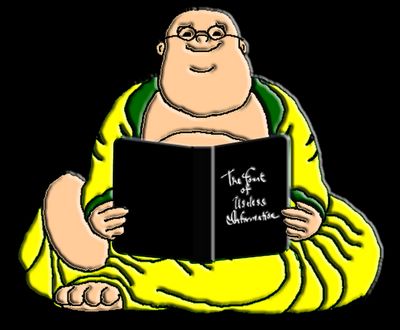While I was updating the What am I Reading list on the sidebar, I realized that it still said that a review of Brave New World by Aldous Huxley was on its way. In the interest of time and getting something posted before I completely forget, I'm going to use parts of an email I wrote to the person who had first recommended the book to me. Hey, it's not plagiarism if you're copying yourself...it's just lazy.
For those of you who are unfamiliar with the book, Brave New World is a book written in the 1930's about a dystopian society in the future. Rather than focus on space flight or massive technological advances, Huxley's book looks at societal changes. When we first see the society, everyone is happy and there really doesn't seem to be much to worry about. The citizens are broken up into castes (Alpha, Beta, Gamma, Delta, Epsilon). A person is designated to be in a specific caste from the very beginning. Using developmental techniques and hypnopaedic training (repetition of the same phrases over and over during sleep), everyone was designed to be perfect for their specific caste and the jobs their caste performs. To prevent the society from suffering because of self-interest, no lasting relationships are ever formed. Marriage and all forms of pair-bonding are completely out, and it is the responsibility of everyone to be promiscuous and "have" as many people as possible. No children are ever born; they are all decanted from bottles in the state-run laboratories. Everyone is happy because they have been told that they are happy, and if they are not there is always the daily ration of soma, a mind-altering drug.
While reading the book, one thing I noticed repeatedly was the influence of communism/socialism in the "civilized" society. While Huxley did include some capitalist ideas (hypnopaedically enforced consumerism, for example), it seems that he might have been looking with fear toward the possibility of a communist society. After all, the removal of religion, stressing of the importance of only the society never the individual, the specific role for each person and the inability to change one's lot in life are all very similar to the Russia of that time (or at least what most in the west knew/were told about them even up through almost the end of the Cold War).
Many of the personality issues were interesting as well. To see the interactions of people who feel that they are different than the rest of society and how they deal with it: Helmholtz and his longing for something greater. Bernard and his bragging to make up for his physical shortcomings. To see the people who have been sheltered in such very different ways and the struggles to deal with the differences: Lenina (and most of the society) and John (the "savage"), who never was able to realize that everyone else didn't play by his rules.
The treatment of women was also very intriguing. In the entire book, I am not sure if we ever meet an Alpha female. Lenina is never specified, but I assumed that she was a beta. Whether we meet an alpha female or not, none of the extremely high ranking or high functioning people we meet are female. The fact that people can "have" whomever they want has not seemed to help their place either as all of the women are concerned about how good and how desirable they are. Bernard even points this out on a couple of occasions noting that the men only thought of them as meat and the women thought of themselves that way as well. Even in the perfect, everyone is happy, society there were still inequalities.
The Verdict:
Of course, in the end, we are supposed to realize that forced perfection and forced happiness are not real. The book was quite remarkable for the detail with which the society was laid out and the developments Huxley imagined in so early in the 20th century. In the end, I felt that, much like Fahrenheit 451, so much went into the development of the society and the social commentary of the story that the author tended to lose sight of the narrative toward the conclusion and end not with a bang, but a whimper. Fortunately, in both cases, this does little to diminish the book or prevent my recommendation of it.
Until later...
July 24, 2005
Book Review: Brave New World
Subscribe to:
Post Comments (Atom)

1 comment:
Great book review. Interesting book as well. I've always wondered if I'd have a different take on it now, compared with how I saw it when I first read it at 17.
Post a Comment